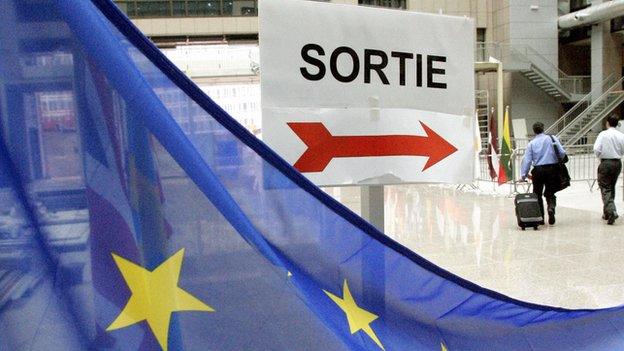Merkel not ruling out EU treaty change after Cameron talks
- Published
German Chancellor Angela Merkel says a change to the EU treaty is not impossible
Angela Merkel has said she does not rule out future treaty changes in Europe and will be a "constructive partner" to the UK in getting reforms.
After talks with David Cameron, the German leader said her "clear-cut" view was that the UK should stay in the EU.
While there was already "common ground" across many areas, she said progress on welfare would be "more protracted".
The British prime minister said there was no "magic" solution to reform but "where there's a will there's a way".
The PM, who is on a whistle-stop tour of Europe trying to gather support for changes he wants before holding the UK's EU membership referendum, also repeated his call for Fifa boss Sepp Blatter to stand down as soon as possible.
'Guiding principle'
Speaking at a press conference after their talks in Berlin, Mrs Merkel said the two leaders had begun to talk about "specific issues" of future reform after Mr Cameron's general election victory.
She told journalists that Germany and other EU countries had "red lines" - such as upholding the principle of freedom of movement - but that she hoped as far as possible to accommodate the UK's demands.
"Where there is a desire there is a way," she said. "That should be our guiding principle."
She added: "We would like to be a part of the process that is going on in Great Britain at the moment and we would like to be a constructive partner in this process.
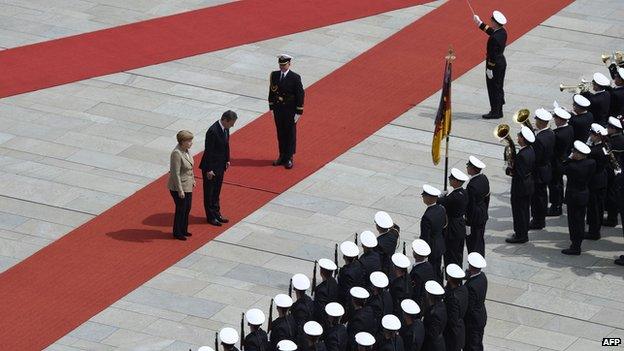
Berlin was the fourth and final stop of David Cameron's tour of European capitals
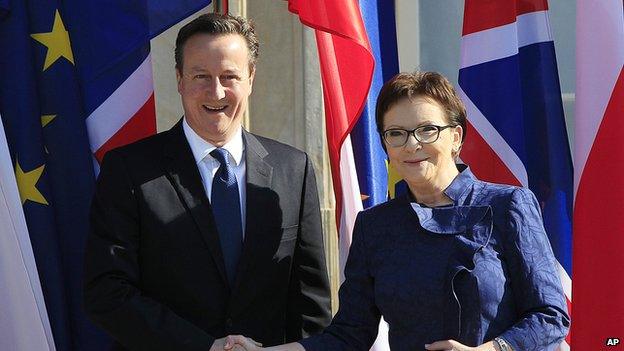
David Cameron's first meeting of the day was with Polish Prime Minister Ewa Kopacz

Analysis by Berlin correspondent Jenny Hill
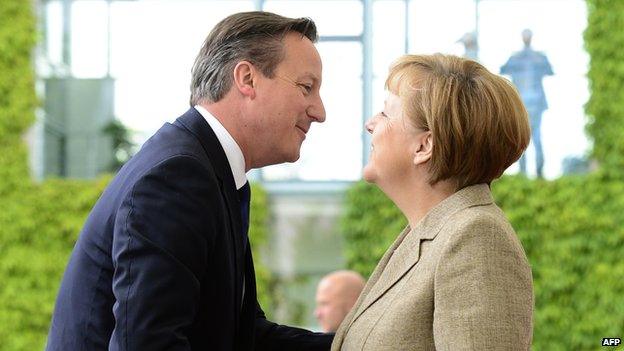
The picture on the German news site Spiegel is striking: the British prime minister leaning in close to kiss a smiling German chancellor.
But the accompanying headline was more of a surprise to Germans: "Merkel doesn't rule out treaty change!"
Because Mrs Merkel, like the leaders of France and Poland, has thus far drawn the line at treaty change. Now she seems to be saying: "Let's look at the content of what Mr Cameron wants before we assess how - and if - we can achieve it".
Today's working lunch at the chancellery (which reportedly consisted of shrimp tartar with salad, veal escalope, asparagus and potatoes, followed by strawberries) seems to have set a conciliatory tone.
Her apparent willingness to compromise may irritate some. A senior German business figure told me that Mrs Merkel should refuse to negotiate with Mr Cameron while he's threatening to pull Britain out of the EU. Volker Treier, who represents the German Chambers of Industry and Commerce, said they were all "astonished" by the prospect of a referendum on UK membership.
And the overwhelming view from Berlin is: Germany needs Britain in the EU. It's an important political and economic ally and, in the words of one senior conservative politician, "we're ready to do anything that can be done to keep Britain in the EU".

Mr Cameron repeated his belief that the changes could only be achieved through treaty change, a move opposed by some European countries, including France, but he said what mattered was the "substance" of the reforms not the method by which they would be achieved.
"This is about starting the process," he said of the talks. "Of course it is going to be difficult but the important thing is to get it under way."
On the prospect of treaty change, Mrs Merkel said: "If we're convinced of the substance we shouldn't say it's impossible to change the treaty. We should concentrate on the substance, not too much on formalities."
The UK prime minister, who earlier concluded a brief visit to Poland, has not set out in full detail the reforms he is pushing for but they will include tougher rules to prevent migrants claiming benefits.
He also wants safeguards to protect the City of London in the event of closer eurozone integration and an exemption for Britain from the EU drive for "ever closer union".
Securing the backing of Ms Merkel, who leads Europe's largest economy, will be crucial to Mr Cameron's hopes of presenting a package reforms to voters ahead of the UK's in/out referendum, which will take place before the end of 2017.
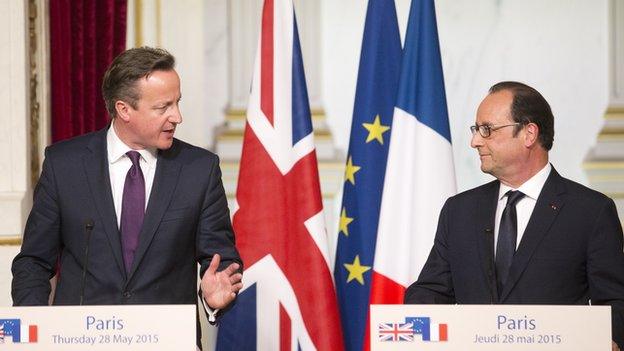
Mr Cameron met French President Francois Hollande on Thursday
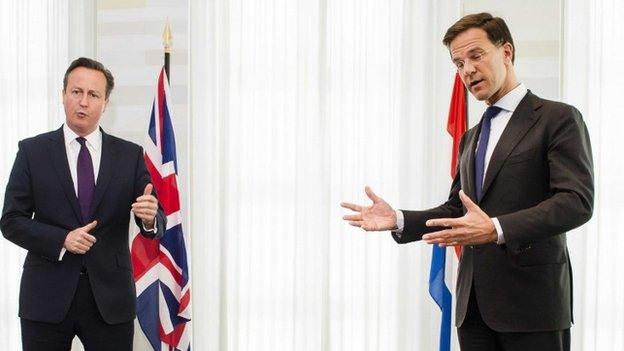
And also held talks with his Dutch counterpart, Mark Rutte
After Mr Cameron's breakfast meeting with Polish Prime Minister Ewa Kopacz, Downing Street said the UK and Poland agreed on the need for more powers for national parliaments and for countries outside the eurozone to be treated fairly in the event of closer integration within the single currency bloc.
"On immigration and welfare, Prime Minister Kopacz welcomed the prime minister's commitment to respect the principle of free movement," a No 10 spokesman added.
"They agreed that there were issues concerning the interaction between free movement and national welfare systems that should be discussed further."
'Shopping list'
Speaking ahead of the visit Rafal Trzaskowski, Poland's Minister for European Affairs, told the BBC they would listen but that any treaty change or attempt to restrict access to benefits for EU migrants would be difficult.
"As far as treaty changes are concerned or the introduction of discriminatory measures, that would be a red line for Poland."
Poland's Minister for European Affairs Rafal Trzaskowski says discriminatory measures would be a "red line for Poland"
He added: "If every country comes with a shopping list to change European Union policies, that will be the end of the European construction, it will simply implode."
The UKIP Independence Party, which wants the UK to leave the European Union, said David Cameron's promised referendum on the UK's future in Europe - due by the end of 2017 - was about who governs the country rather than the details of benefits policy.
"David Cameron is trying to make the UK's relationship with the European Union simply a question of migrant access to benefits," said its leader Nigel Farage.
"In reality, this is a marginal detail of a far bigger problem - both with mass inward migration putting pressure on wages and causing huge problems in the provision of public services and housing and also in the broader sense of our relationship with an out of date, sclerotic, over-regulated bloc."

EU referendum in focus
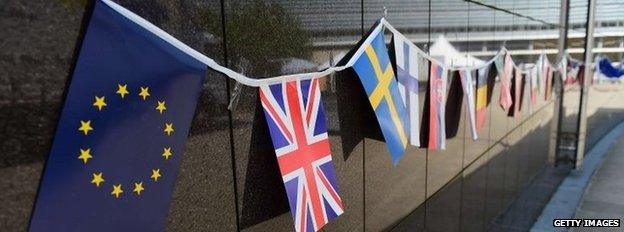
David Cameron is starting renegotiation of the terms of Britain's EU membership ahead of a referendum. Here is some further reading on what it all means:
The UK and the EU: Better off in or out?
What Britain wants from Europe
Q&A: The UK's planned EU referendum

- Published29 May 2015
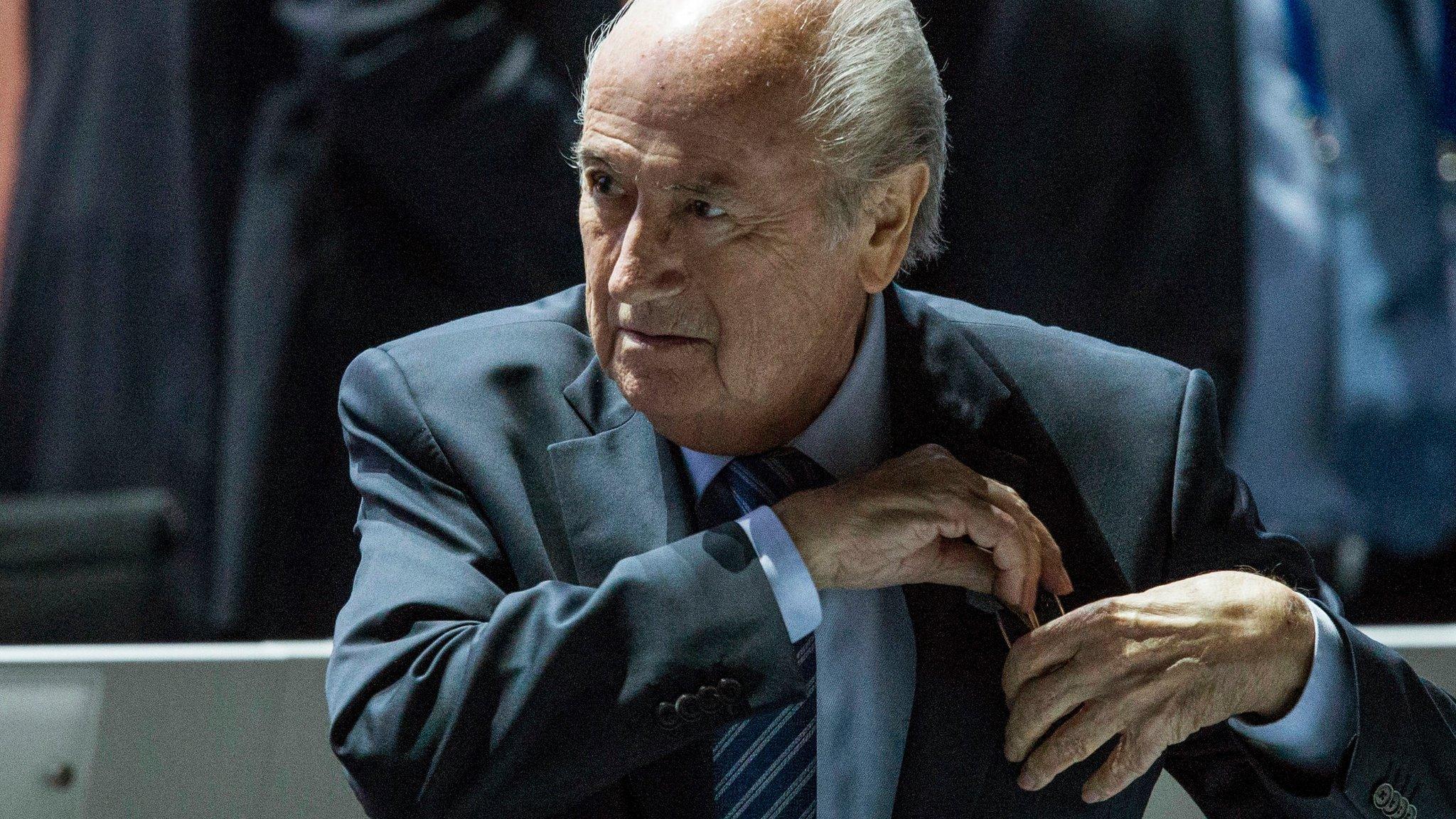
- Published29 May 2015
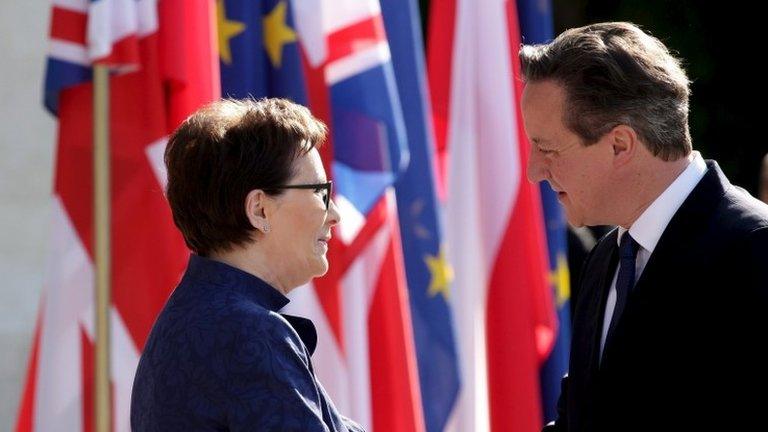
- Published28 May 2015
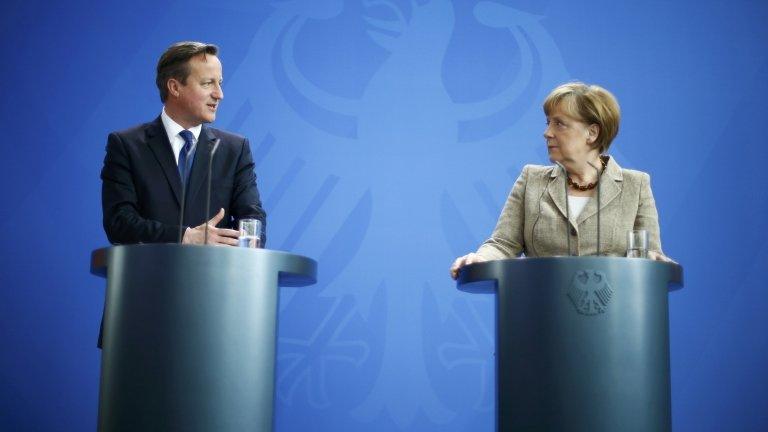
- Published28 May 2015
- Published30 December 2020

- Published27 May 2015
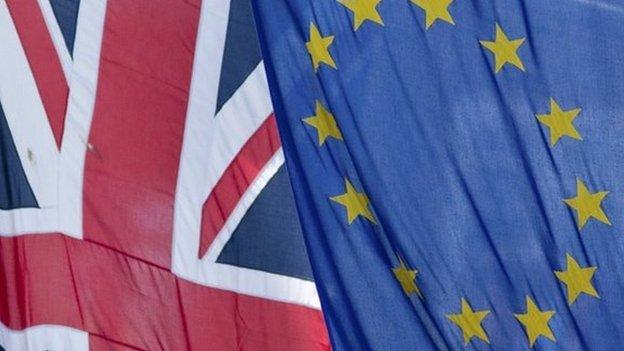
- Published27 May 2015
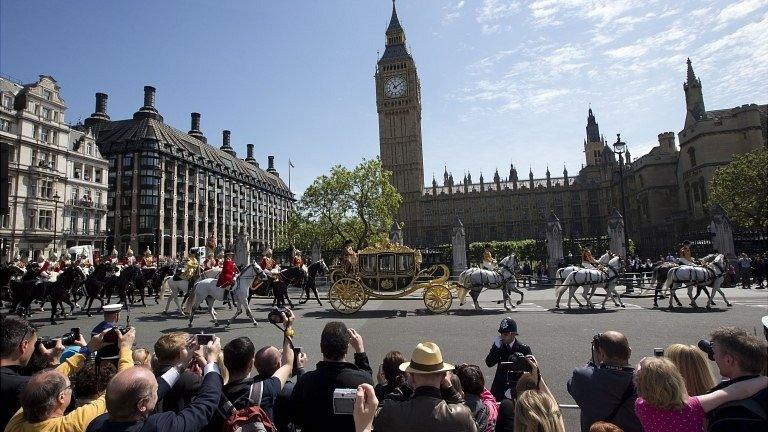
- Published17 February 2016
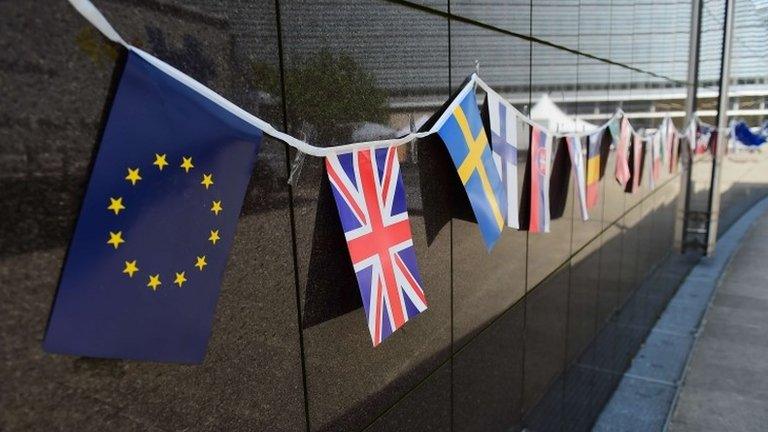
- Published26 May 2016
